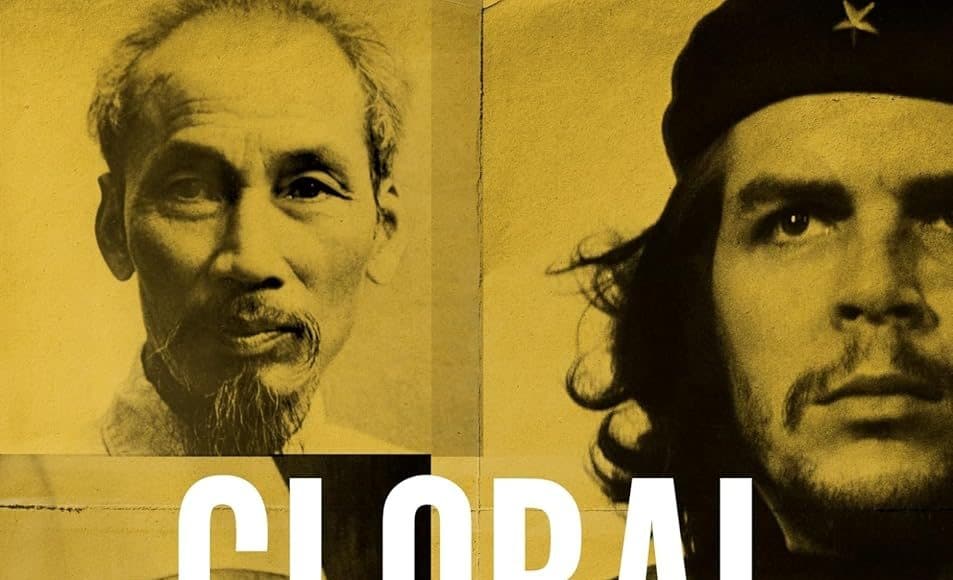Global Marxism: Decolonisation and Revolutionary Politics, Simin Fadaee, Manchester University Press, 2024, hardback £85

This most welcome publication is written in defence of the continuing relevance of Marxism as a fundamental way of understanding the world and includes an appreciation of Marxism’s political influence on national liberation movements and their leaders. The bulk of this book work consists of nine short biographies: Jawaharlal Nehru of the Indian subcontinent (1889-1964); Ho Chi Minh of Vietnam (1890-1969); Mao Zedong of China (1893-1976); Kwame Nkrumah of Ghana (1909-1972); Amilcar Cabral of Guinea-Bissau and Cape Verde (1924-1973); Frantz Fanon (1925-1961) of Martinique based in Algeria; Ernesto Che Guevara (1928-1967) born in Argentina, active in Cuba, Africa and Latin America; Ali Shariati (1933-1977) of Iran; and Subcomandante Marcos (b1957) of Mexico, representing in particular the indigenous people of Chiapas.
In defence of Marxism
At the same time as providing a neat and compact guide to these past leaders of liberation movements, Fadaee is concerned with current political disagreements about the value and history of Marx’s critique of capitalism in the context of the underdeveloped world. There is an influential tendency in academic and bourgeois media that promotes the idea that Marxism is Eurocentric. These post-colonial theorists propose the notion that fundamental differences between the powers of the North and the South affect the ‘psychology of political actors’ and that the solution to this is a conscious programme of decolonising language and institutions to understand ‘the other.’
This is far from the approach taken by the leaders of the independence struggles who are profiled in this book. They and their supporters studied and were inspired by the work of Marx, Engels, and Lenin. They understood that their conquered societies were the product and result of the expansion of capitalism on a global scale. Marxist economics describes the relentless need for capital to reproduce its profitable investments beyond national barriers. Lenin’s Imperialism, the Highest Stage of Capitalism (1917) builds on this analysis to describe the material basis for the export of capital to extract super-profits, primary resources, and cheap labour from subjugated areas of the world. This understanding was an essential part of the struggle for national independence because it targeted the enemy, imperialism, and envisaged some form or other of socialism as the victory. The sacrifice of thousands of lives in anti-imperialist struggle was made in the name of justice and equality but also in the hope of achieving socialism.
The ideological conditions of struggle
The concrete historical situations in which resistance to foreign domination developed and was organised was specific to each country. Successful mass movements had to develop strategies directed against the relentless forces of racist humiliation and contempt directed at indigenous peoples and cultures by the foreign ruling powers. In addition to military training organised revolutionaries developed literacy and other programmes of education for communities of peasants and landless workers. In most countries the mass movements for independence also had to deal with their own national comprador bourgeoisie, those who benefit from and act as agents for imperialism.
The limits of post-colonialism
In her combative introduction, Simin Fadaee defends, not just theoretically but backed up by historical fact, the importance of a Marxist understanding of global capitalism. In contrast, post-colonialism tends ‘to deny that capitalism is the basis of European power, hegemony, and global expansion… In fact refusing the fundamental role of capital in structuring our societies and lives’(p8).
The aim to ‘decolonise’ the language and prejudices of institutions, public discourse and personal relationships has an enormous value but should not function merely as a cosmetic to conceal the continuing impact of imperialist aggression in the real world. The plunder and looting by capitalism of global resources and communities is the material base of ideologies of prejudice and must be fully exposed as such. As Simin Fadaee says, ‘Where the fundamental interrelations that exist between capitalism, colonialism, and racism’ are ignored, post-colonial theories are a disservice to action. This informative and accessible book provides an incentive to understand and organise against imperialism today.
Susan Davidson
FIGHT RACISM! FIGHT IMPERIALISM! 303 December 2024 /January 2025




